Summer break is a time for children to relax and unwind, but it’s also crucial to keep young minds engaged to prevent the notorious “summer slide.” Especially Education summer and Extended School Year (ESY) task boxes offer an excellent solution for parents and educators seeking to maintain and enhance early learners’ skills during these months away from school at home.
Especially Education task boxes are carefully curated educational tools designed to target specific learning goals in a fun and engaging way. These boxes typically contain a variety of activities that focus on foundational skills such as counting, letter recognition, fine motor skills, and more.
What Are Task Boxes?
Task boxes are designed to be self-contained, making them easy for children to use independently, which is particularly beneficial during the less structured summer months.
The Benefits of Task Boxes
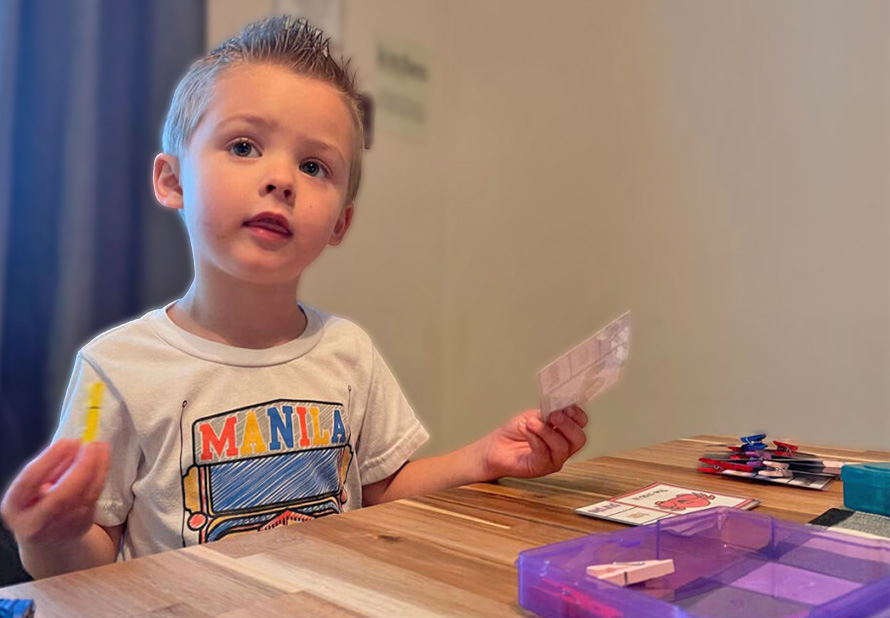
1. Structured Learning Through Play
One of the most significant advantages of Especially Education task boxes is their ability to provide structured learning in a playful context. Each box is designed with clear instructions and objectives, which help children stay focused on the task while feeling like they are playing.
This blend of structure and play keeps children engaged and motivated, making learning feel less like a chore and more like an enjoyable activity.
2. Skill Retention and Development
Over the summer, many children experience a decline in academic skills due to the lack of consistent practice. Task boxes help mitigate this issue by providing continuous, hands-on learning opportunities.
The activities within the task boxes reinforce essential skills such as math, literacy, and fine motor development, ensuring that children return to school in the fall with maintained or even improved abilities.
3. Promotes Independence
Task boxes are designed to be user-friendly for young learners. This autonomy allows children to take control of their learning, fostering independence and self-confidence.
As children complete the tasks on their own, they develop a sense of accomplishment and pride in their work. This self-directed learning is particularly beneficial during the summer when parental supervision might be less intense.
4. Encourages Routine and Structure
While summer is often less structured than the school year, maintaining some routine can be beneficial for young children.
Incorporating task box activities into a daily schedule provides a predictable and productive structure. This routine can help children transition more smoothly back into the school environment when summer ends.
5. Customizable and Versatile
Especially Education task boxes can be tailored to meet the specific needs and interests of each child. This customization ensures that the activities are challenging yet achievable, catering to different learning styles and paces.
The versatility of these boxes also allows them to be used in various settings, whether at home, on vacation, or even outdoors.
Practical Tips for Using Task Boxes in the Summer
- Set a Daily Routine: Allocate a specific time each day for task box activities to create consistency.
- Involve the Child: Let your child choose which task box they want to work on to increase their engagement and interest.
- Mix It Up: Rotate the task boxes regularly to keep the activities fresh and exciting.
- Monitor Progress: Keep track of which skills your child is mastering, and which need more practice, adjusting the activities accordingly.
Simple, but Invaluable Task Boxes
Especially Education task boxes offer an effective, engaging, and versatile way to keep early learners’ minds active during the summer.
By providing structured yet playful activities, these boxes help prevent the summer slide, promote independence, and maintain a routine.
Pin for Later!
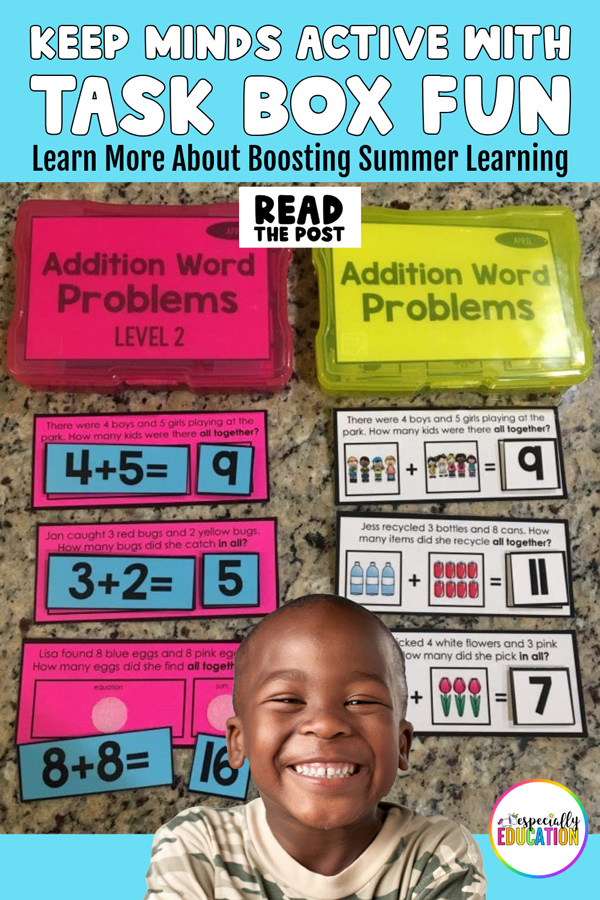



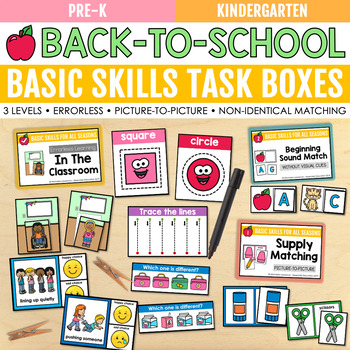
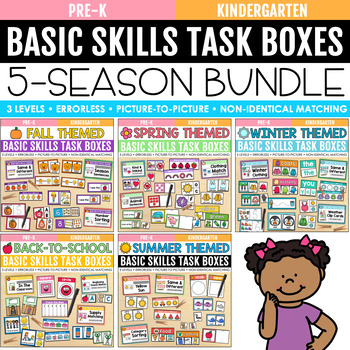
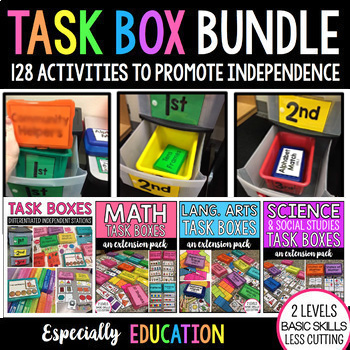
Leave a Reply